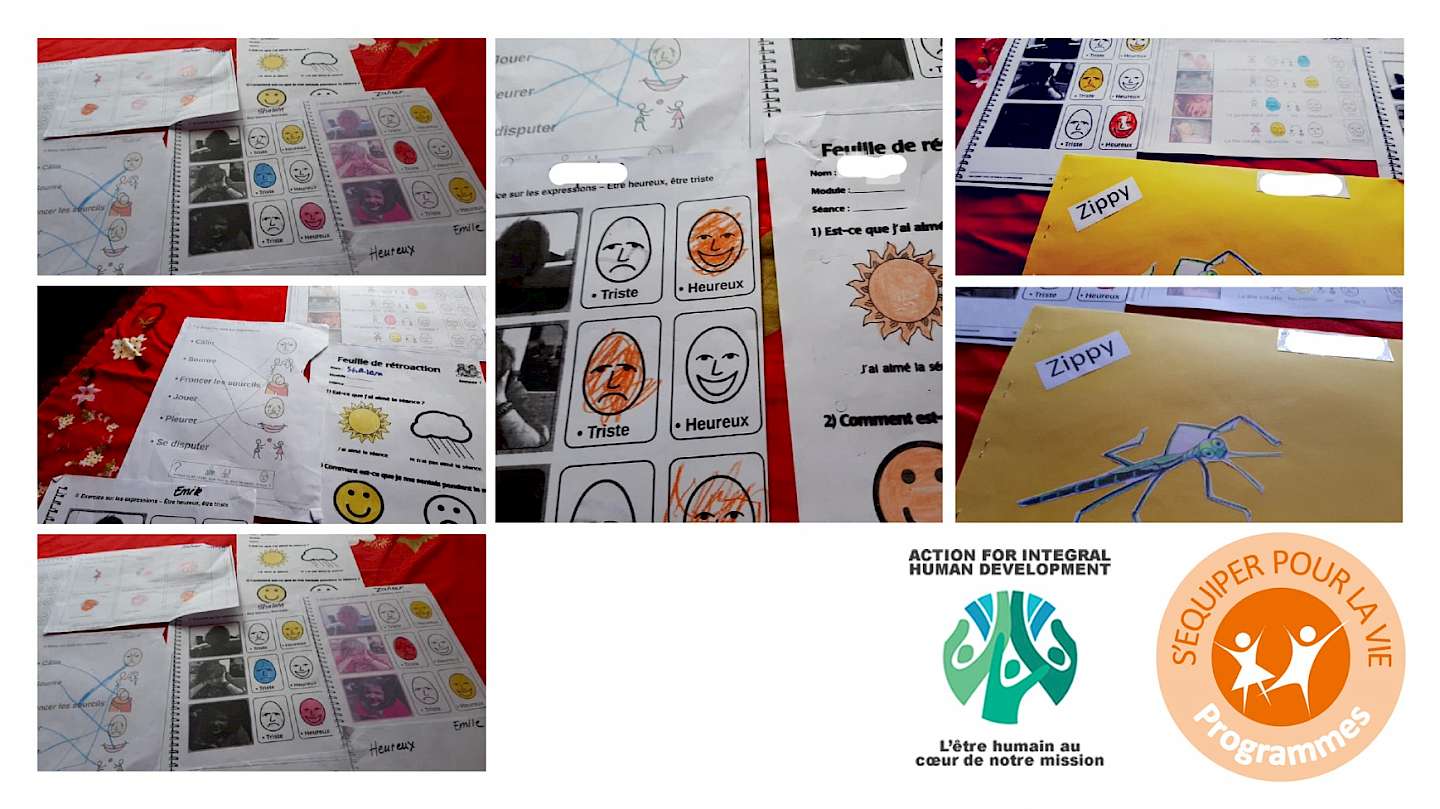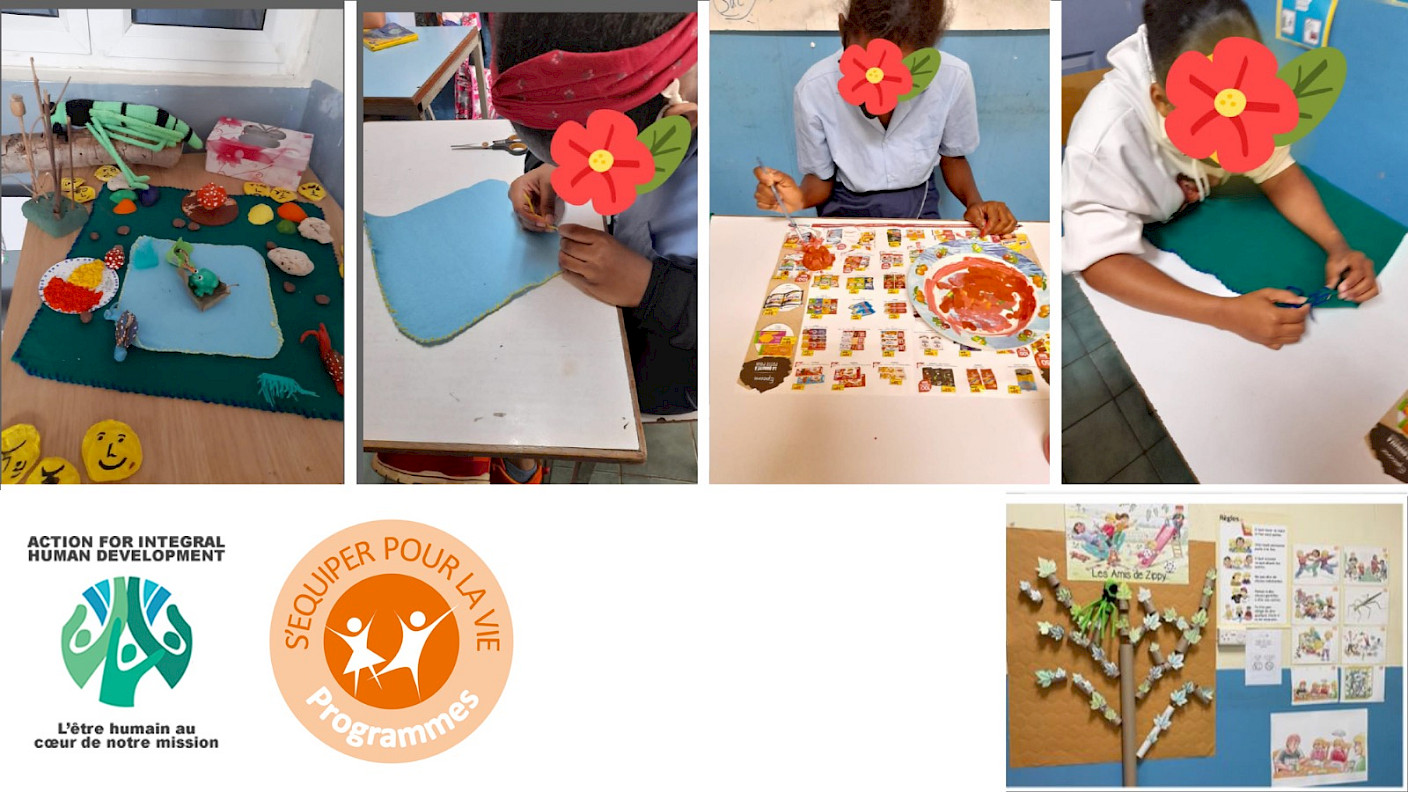One in four children in Mauritius benefitted from the Skills for Life programmes

We are privileged to work with a number of organisations all around the world who support us with our vision - a world in which the development of mental health and emotional resilience is part of life for every child – at home, at school and in the community.
In this blog, the team at Action for Integral Human Development, our Licensed Partner in the Republic of Mauritius, share their reflections on 14 years of supporting children’s mental health and wellbeing through the Skills for Life programmes.

In the Republic of Mauritius, in 2021, one in four children benefited from the Skills for Life programmes and one in 11 educators have been trained to facilitate such programmes. This year, Zippy’s Friends, Zippy’s Friends for SEND, Zippy’s Friends Sensitization videos and Apple’s Friends are being implemented at National Level in 310 schools, and eight Special Needs Schools.
What a challenging road it has been since starting with Zippy’s Friends Programme in 2009 in 10 schools with Zippy’s Friends programme and 1,000 children! The milestones achieved on this road have been partly inspired by the modules from the Skills for Life programmes as illustrated below:
- Feelings: along the way we have felt many different feelings from feelings of great joy and excitement of implementing the first Social and Emotional Well-being school-based programme in the Republic of Mauritius; to feelings of fear and apprehension on a yearly basis of having insufficient financial support to expand the programmes, to feelings of hope that the programmes will be implemented at national level. We have learnt to identify these emotions, welcome them and found great strength in sharing them amongst our team.
- Communication: Listen, listen and listen. Listen to the educators and school Headteachers facing many daily challenges and finding it hard to find time and energy to facilitate a non-academic programme! Listen to the officers working in governmental institutions with different realities and context.
Communicating though various interventions in the local media about the importance of promoting good mental health and sharing some practical and concrete tools of ways to do so. - Relationships: Establishing, nourishing, and building relationships, starting with our own team by taking time to celebrate our accomplishments; care, encourage and support each other. Taking time to meet, discuss and reinforce the collaboration with key stakeholders and financial partners…
We all love the work we are doing, and it makes so much sense to contribute in promoting the good mental health of the human person. - Conflict Resolution: When it comes to investing in the promotion of good mental health in a country, it often comes into direct conflict with the investment in economic development. How much does the State choose to invest in building new and innovative modern buildings, shopping malls, attractive luxury villas, renovating hotels to attract more high-class tourists…?
And how much it chooses to invest on developing accessible and professional mental health services? By having more than one child psychiatrist for all children (approx. 300,000); by having readily accessible psychological and counselling support services in all hospitals and dispensaries (there are a few dozen psychologists for 1.2 million inhabitants)
Or having evidenced school-based programmes at national level to promote the emotional and social wellbeing of children throughout their schooling years.
Knowing that investing in good mental health at national level is going to be the most beneficial and impactful investment in the long-term for a country! - Change and loss: Along the way we have had to learn to constantly embrace and accept changes, both internally within our own social enterprise e.g. departure of some colleagues, re organization and allocation of tasks- and externally e.g. closure of schools for months due to the pandemic and creating sensitization videos of Zippy’s friends for children and their families transmitted on national television.
- And last but not least, the essential tool to have in our emotional and well-being toolbox has been ADAPTATION SKILLS: acquired throughout the years and still to this date! Working in the field of mental health and trying to bring our contribution very humbly to this country which is so dear to us. To ensure that it is not only the blue clear sea water that is surrounding our island which is one of the key attractions, but most importantly the people who live on the island - who can shine from the inside having acquired the psychosocial skills to live their lives to the fullest.